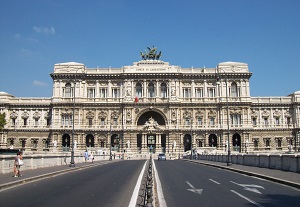1. In guise of Introduction
The ILA has (and has had) several committees concentrating on different problems of the observance and implementation of Human Rights. It also has (and has had) committees concentrating in problems of definition and implementation of Sustainable Development – which, as we all know, has Human Rights as one of its three pillars.
I have served, and serve, in two of these committees (Legal Aspects of Sustainable Development, which finished its work in New Delhi in 2002, and its successor, International Law on Sustainable Development, still active) since I joined the ILA in 2003, and benefited greatly from the experience of my committee colleagues, many of which come from the former Committee on Legal Aspects of a New International Economic Order.
The result of these Committees´ work can be found not only in bi-annual Reports and Resolutions[1], but also in several books published by them, among which I would like to refer to The Right to Development in International Law[2], Sustainable Development and Good Governance[3], International Economic Law with a Human Face[4], and Reflexions on Emerging International Law – Essays in Memory of Late Subrata Roy Chowdhury[5].
These reports and books were published in different years, but they have in common the fact that they all dealt with the importance of promoting human rights, first in the context of the definition and implementation of the Right to Development, and later in that of the definition and implementation of sustainable development. Since, given existing disparities between countries and within countries themselves, this depends on cooperation – as stressed in Agenda 21, both between countries and within them as well, the need to build a Human Rights Culture within international (and national) institutions calls for no further enhancement.
2. Human Rights in the work of the ILA Committees on Sustainable Development
In 1992, the 65th Conference (Cairo Conference) adopted Resolution 12, by which the former Committee on Legal Aspects of a New International Economic Order presented its final report, reconvening as a new Committee – on Legal Aspects of Sustainable Development – which terms or reference and possible work program were established in Part IV of the said report. The words “Human Rights” are first employed in the final paragraph of point 4.2; “ …It is envisaged that the Committee’s formulation of principles will be particularly responsive to the agenda of the UN Decade on International Law for the progressive development of international law norms, particularly in the areas of environment and human rights”. Further mention was made, in point 4.3. to aspects of the problems of sustainable development that have a significant legal component, which are appropriate for study by the Committee…a. Elucidation or(sic) rights of participation in the development process, including the rights of beneficiaries of development projects and project affected persons, and devising mechanisms for the effective exercise of the rights…”[6]
The new Committee[7] presented its first report in Buenos Aires (2004). It concentrated in the analysis of UNCED (92) and its legal products, as well as on the impact (upon sustainable development) of the creation of the WTO. Although the focus was directed mainly at good governance as a requisite for sustainable development and the economic and environmental “legs” of sustainable development, the human rights aspect was not absent – special attention was paid to the right to a healthy environment and to the right to development[8]; the report further analysed the outcome of the 1993 Vienna UN Conference on Human Rights and its Declaration and, in point 2.1., stated the need to elaborate the Right to Development in the context of the other collective human rights and of all individual human rights, giving priority to the fight against absolute poverty and to attuning the right of self-determination of peoples to the promotion and protection of civil, cultural, economic, political and social rights[9].
In fact, this was a logical development of discussions during the 1993 Committee Seminar organized with the University of Graz (Austria), which resulted in the afore mentioned book Sustainable Development and Good Governance. Although the book´s main focus rests on good governance, several of its chapters specifically approach the human rights dimension of sustainable development, such as those written by Yoshiro Matsui[10], Amado Tolentino[11], Peter Slinn[12], Phillipe Sands and Jacob Werksman[13], Celia Taylor[14], Paul de Waart[15], Karin Arts[16], Wolfgang Benedek[17], and Pearson Nherere[18].
Between the 66th and 67th Conferences the Committee convened in another seminar – with the University of Amsterdam in 1996 – which resulted in the previously mentioned book International Economic Law with a Human Face. Special chapters dealing with the human rights component were written by Kamal Hossain who centered his paper on emerging state practice of democratic government in the Commonwealth and South Asia [19]; Friedl Weiss who discussed internationally recognized labour standards and trade, and especially common interests shared by the ILO and the WTO, concluding, i.a., that although a growing concern about the appalling conditions of work existed in many places in the world, before a multilateral social clause could be established several issues needed to be addressed [20]; Paul de Waart addressed the issue of human rights in international trade (people at the centre of development), in the context of the 1995 World Summit for Social Development and the role of UN related human development agencies[21]; Asif Qureshi wrote about international trade and human rights from the perspective of the WTO[22].
In 1996 the Committee presented its second report to the 67th Conference, in Helsinki. The report noted the Committee´s concern over an unbalanced development of international law in the field of sustainable development and the lack of a normative structure for international economic relations between developing and developed countries, particularly the absence of a human face of the International Economic Order[23]. The Committee decided on a work programme which envisaged three subcommittees – Subcommittee 2, chaired by Paul de Waart, charged with, i.a., promoting a constructive tripartite dialogue between IGOs, NGOs and governments, on the development of standards of political and social freedoms, e.g. a human rights impact assessment as an integral part of projects and programmes touching upon sustainable development[24].
Once more, the Committee convened between Conferences – this time (1997) in Dhaka (Bangladesh), in a Joint Seminar with the Commonwealth Human Rights Initiative and the Bangladesh Legal Aid and Services Trust, on Sustainable Development, Human Rights and Regional Cooperation. In addition to Plenary Meetings, two parallel workshops took place – one dedicated to discussing national human rights commissions, and the second, on Sustainable Development and Regional Cooperation, discussed, i.a., sustainable development and the implementation of economic, social and cultural rights and children and women´s rights: child labour and trafficking. As a result, the Committee Report to the 68th. Conference dedicated three pages specifically to human rights[25], and the work program foresaw a questionnaire as a means to explore the feasibility of drafting an ILA Declaration on Principles on International Sustainable Development Law.
The Committee met between the 68th and 69th Conferences – this time in Sao Paulo (Brazil), in a seminar organized with Universidade São Francisco, following the I Regional Latin American Conference of the ILA which took place at the Faculty of Law of the University of Sao Paulo and discussed Mercosul, Human Rights and Sustainable Development.[26]
In 2000 the Committee on Legal Aspects of Sustainable Development presented its fourth report (London, 69th.Conference), which introduction pointed at the degree of controversy in assessing the positive and negative aspects of globalization, within the context of sustainable development. The report stressed that, although many developing countries were part and parcel of the world economy growth process, the number of people living in absolute poverty was increasing – 1.2 billion still living on less than 1 $ a day, more than a billion people lacking access to safe water and more than 2.4 billion lacking adequate sanitation[27]. It drew attention to dramatic events in parts of Africa, Europe and Asia, where new conflicts had erupted and old ones continued, seriously impeding the path to sustainable development in peace and re-emphasizing the interdependent nature of peace and security, of economic and social progress, of respect for human rights and of environmental conservation. It also posed (but did not answer) a question – is international law moving in the direction of more justice and equity in international relations and for more influence of people on public international decision making? Would that serve the cause of sustainable development?[28]
The Committee on Legal Aspects of Sustainable Development met once more in Amsterdam in 2001 in a joint seminar on International Law and Sustainable Development: Principle and Practice, with the Amsterdam Institute for International Development. It then presented its fifth (and final) report to the 70th Conference of the ILA. The final report proposed the New Delhi Declaration on Principles of International Law Relating to Sustainable Development, which was adopted by the plenary of the Association as Resolution 3/2002, and later, presented by the Governments of Bangladesh and The Netherlands to the United Nations General Assembly, adopted by the General Assembly of the United Nations as document A/57/329 and circulated by the UN in the Johannesburg UN Summit on Sustainable Development as document A/CONF.199/8.
The second paragraph of the New Delhi Declaration consideranda emphasizes that sustainable development “ …should be integrated into all fields of policy in order to realize the goals of environmental protection, development and respect for human rights[29]…”; the thirteenth EXPRESSES the view that the objective of sustainable development involves a comprehensive and integrated approach to economic, social and political processes “ …which seeks to realize the right of all human beings to an adequate living standard on the basis of their active, free and meaningful participation in development and in the fair distribution of benefits resulting therefrom…” ; the fourteenth IS OF THE OPINION that the realization of the international bill of human rights, comprising economic, social and cultural rights, civil and political rights and peoples´ rights, is central to the pursuance of sustainable development”. The words Human rights are also specifically employed in Principles 1 (the duty of states to ensure sustainable use of natural resources), 2 (the principle of equity and the eradication of poverty, 5 (the principle of public participation and access to information and justice) and 7 (The principle of integration and interrelationship, in particular in relation to human rights and social, economic and environmental objectives).
Several members of the Committee participated as speakers in the conference Sustainable Justice 2002 –implementing sustainable development law, hosted in June 2002 at McGill University in Montreal (Canada) by CISDL (Centre for International Sustainable Development Law), UNEP and the World Bank. Workshops included, i.a., Sustainable International Human Rights Law and Poverty Eradication.
The ILA Committee on International Law on Sustainable Development[30] presented its first report to the 71st. Conference, in Berlin. The report states the Committee´s Mandate. The principle of integration (Principle 7 of the New Delhi Declaration) becomes a key focus for Committee work, and the relationship between human rights and sustainable development is once more emphasized[31], but it in fact permeates the whole report.
The second report, presented to the 72nd Conference in Toronto, faces the challenge. Its 46 pages approach integration from different perspectives – systematic, institutional, legal (both normative and as a judicial reasoning tool)[32]. It makes clear, however, that this is but an initial discussion, to be pursued and deepened.
Members of the Committee held a working session in the Regional Meeting of the ILA in Pretoria, hosted by the South African Branch, and proposed to Committee officers that four internal working groups be established to help the officers in their work. The proposal was accepted, and sub-group 2 was established to address the issue of sustainable development and human rights.
3. Some closing remarks – integrating ILA Committees
The ILA has permanent status as Observer with the United Nations system. This allows for its members (upon recommendation by Headquarters) to participate in this quality in official conferences of the United Nations. Officers and members of the Sustainable Development Committees have availed themselves of this opportunity, and participated in different conferences, divulging the work of the ILA Committees and reporting back to the Committees in their working sessions[33].
One of the great things about ILA Conferencesis the practice of Committees to hold open Working Sessions, in which all persons present, be them Committee members or not, are allowed to intervene. This allows for cross fertilization and, lately, some Committees have started to propose joint sessions.
One important factor in the success of the work of the Sustainable Development Committees was the commitment of its Officers and Members in organizing and participating in the special seminars and conferences occurring outside General Conferences. Organizing these seminars and conferences involved much dedication on the part of all, and a special skill on the part of Officers to obtain funds which allowed for the participation of speakers from all parts of the world. This is essential if one wishes to guarantee plurality of views and cultures.
Finally, recent developments in the international arena seem to indicate that the answer to the question posed by the Committee´s report to the 69th (London) Conference about international law moving in the right direction remains dubious (but then, isn´t this true of humankind?). On one hand, one cannot think of success in the pursuit of sustainable development when the media portray, everyday, the horrible conditions in Darfour (not to mention less publicized situations). Conflicts over basic resources (affecting the human right to life, the first and foremost) have prompted the British Government to provoke the Security Council in the matter of food security.
ILA Committees play a fundamental role as meeting points for different cultures and systems. Their worldwide member nets both feed the organization with direct information originating from their realities and spread information acquired in meetings in their national environments. Synergy (or cross fertilization?) among its Committees is bound to enrich this process – and is a good contribution towards building a culture of human rights, fundamental to the achievement of sustainable development.
Susana Camargo Vieira[34]
[1] Which can be found in the ILA Conference Reports or in the ILA website – www.ila-hq.org
[2] Edited by Subrata Roy Chowdhury, Erik M.G. Denters and Paul J.I.M. de Waart, published by Martinus Nijhoff, with which permission it was printed in India in 1993.
[3] Edited by Konrad Ginther, Erik Denters and Paul J.I.M. de Waart, published by Martinus Nijhoff in the Netherlands in 1995.
[4] Edited by Friedl Weiss, Erik Denters and Paul de Waart, published by Kluwer Law International in the Netherlands in 1998.
[5] Published by the International Law Association, Calcutta Centre, in 2004 in India.
[6] Report of the 65th Conference, pp.12-13.
[7] Chaired by Kamal Hossain and having Nico Schrijver as Rapporteur.
[8] The Report did not consider the former as having been directly included by the Rio Declaration in Principle 1 – but did consider that the Rio Declaration gives recognition both to the principle of the right to development and to the concept of intergenerational equity (Principle 3).
[9] Report of the 66th Conference, pp. 103-136.
[10] Especially pp. 60-64.
[11] Pp. 137-139.
[12] Especially in pp. 170-177.
[13] Pp. 178-204.
[14] Especially pp. 224-229.
[15] Pp. 243-258.
[16] Pp.259-273.
[17] Pp. 279-288..
[18] 280-307.
[19] Pp. 67-78.
[20] First of all (and in order for this clause to operate fairly), a balance of principles and interests and of degrees of trade dependence (hence, vulnerability to sanctions); second, special consideration should be given to the interests of small and weak economies, which would require economic and technical assistance; third, the need to assess case by case if one would envisage sanctions to non compliance with worldwide labour standards. See pp. 106-107.
[21] Pp. 109-132.
[22] Pp. 159-174.
[23] Conference Report, p. 278 in fine.
[24] Report of the 66th. Conference, pp. 298-299.
[25] Pp. 701-703.
[26] Report to the 69th Conference , pp. 670-672. For a full report on the Sao Paulo Conference see Paul J.I.M. de Waart, “Mercosul, Human Rights and Sustainable Development, International Law Forum, vol. I (1999), nr. 4, pp.240-242.
[27] Pg. 656 – see text but also footnotes 1 and 2.
[28] Report to the 69th Conference, pp. 656-657.
[29] Report of the 70th. Conference – emphasis added by author.
[30] Chaired by Nico Schrijver and having as co-rappporteurs Duncan French and Ximena Fuentes.
[31] PP. 566-572.
[32] Report of the 72nd Conference, pp. 467-513.
[33] See Report of the 71st. Conference pp. 590-591 and p. 599.
[34] Professor of Law at Universidade de Itaúna (Minas Gerais, Brazil) and Director Secretary and of Studies of the Brazilian Branch of the ILA. Paper presented to the 73rd. Conference of the ILA, Rio de Janeiro, 2008.





















Scrivi un commento
Accedi per poter inserire un commento